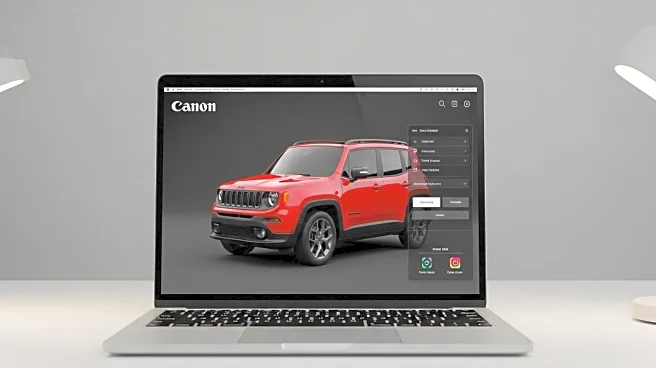What's Happening?
Alysha, a TikTok user, shared her unconventional experience of purchasing a 2024 Jeep Grand Cherokee Limited from Carvana without seeing it in person. Despite initial concerns due to negative reviews about Carvana, Alysha found the process straightforward and cost-effective. Carvana facilitated the trade-in of her old vehicle and delivered the new Jeep directly to her home. Alysha highlighted the absence of a down payment and shipping fees, and upon inspection at a local dealership, the vehicle was confirmed to be in excellent condition. Her video detailing the experience has garnered over 26,000 views, sparking discussions about the risks and benefits of buying cars online without physical inspection.
Why It's Important?
The story underscores the growing trend of online car purchases, which can offer convenience and competitive pricing. However, it also highlights potential risks, such as receiving a vehicle with undisclosed issues. Carvana's model, which includes a return policy, provides some assurance to buyers, but the importance of post-purchase inspections remains critical. This development is significant for the automotive industry as it navigates the balance between digital convenience and traditional dealership experiences. Consumers may benefit from lower prices and streamlined processes, but they must remain vigilant about potential pitfalls.
What's Next?
As online car buying becomes more prevalent, companies like Carvana may continue to refine their processes to address consumer concerns and improve transparency. Potential buyers are advised to follow Alysha's example by conducting thorough inspections post-purchase. The automotive industry might see increased competition among online platforms, prompting traditional dealerships to adapt by enhancing their digital offerings. Stakeholders, including consumers and industry players, will likely monitor these trends closely to assess the evolving landscape of car buying.
Beyond the Headlines
The shift towards online car purchases raises questions about consumer protection and the role of digital platforms in ensuring product quality. Ethical considerations regarding transparency and accountability in advertising are crucial as companies like Carvana expand their market presence. Long-term, this trend could influence cultural perceptions of car ownership and reshape the automotive retail industry, potentially leading to new regulatory frameworks to safeguard consumer interests.












